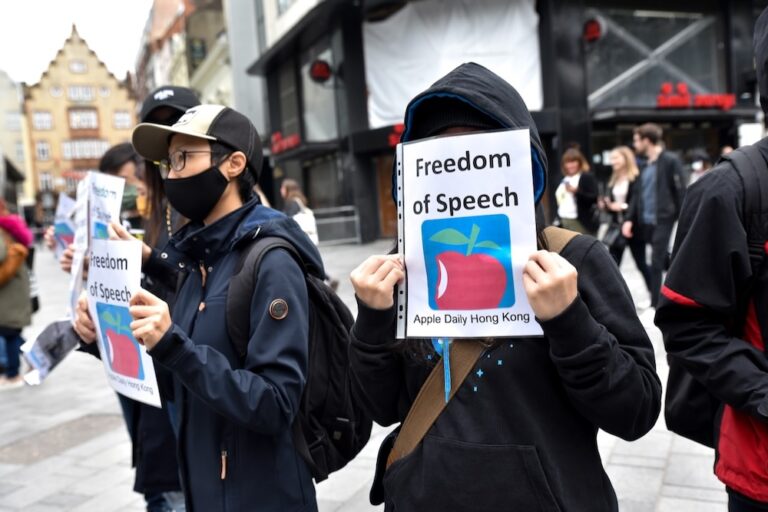(IPI/IFEX) – The following is an IPI press release: Vienna, 2 May 2001 World Press Freedom Day on 3 May 2001 The occasion of World Press Freedom Day 2001 highlights the fact that in many countries silence is preferred to the truth With 56 journalists killed last year and 14 killed thus far in 2001, […]
(IPI/IFEX) – The following is an IPI press release:
Vienna, 2 May 2001
World Press Freedom Day on 3 May 2001
The occasion of World Press Freedom Day 2001 highlights the fact that in many countries silence is preferred to the truth
With 56 journalists killed last year and 14 killed thus far in 2001, journalism continues to be one of the most hazardous professions. It is also a profession which is indispensable in any democracy. In every part of the world, journalists risk their lives daily to bring news to their audiences. Such dedication deserves the full support of all governments and yet there are still many countries around the globe that prefer silence to journalists practicing their profession. IPI has identified several worrying trends regarding methods employed by those in power to silence critical voices and limit the free flow of information.
In a number of countries, suspended sentences are used to restrict criticism of the government. Such sentences constitute a heavy burden imposed on the shoulders of independent journalists and represent a real threat to freedom of the media. For example, in Sri Lanka, two editors were given suspended sentences of five and seven years in criminal defamation hearings last year. Moreover, countries such as Cuba, Indonesia and Vietnam continue to restrict the free movement of journalists under the pretext of enforcing laws that require visas and special permits for media correspondents.
Governments have also tried to extend their control over the Internet and in many countries online media outlets are yet to be given the same rights to freedom of opinion and expression guaranteed to traditional forms of media. In addition, last year saw several disturbing instances of political pressure placed on public television, including the appointment of a political figure to head Czech television in December 2000.
Sadly, violence continues to be part of reality for many journalists. This also holds true for democratic societies otherwise known for their advanced state of press freedom. Ample evidence for this was provided in Spain, where journalists have found themselves under a barrage of attacks carried out by the Basque separatist group ETA. A recent mission to Spain undertaken by the World Association of Newspapers (WAN) denounced the many deplorable acts of violence against journalists in that country, including the callous killing of respected political columnist Jose Luis Lopez de la Calle on 7 May 2000. IPI fully supports WAN’s efforts to express solidarity with journalists in the Basque country and to call on Basque nationalist parties and media to condemn all forms of attack on the press.
Although the annual World Press Freedom Day is highly successful at focusing attention on the plight of journalists and media outlets, further work needs to be done by governments and inter-governmental organisations (IGOs) to improve the situation. IPI invites all governments to honour their international human rights commitments and encourages IGOs to censor members who fail to do so. Without such commitments, journalists will continue to be harassed, assaulted, murdered with impunity and prevented from reporting the news.


